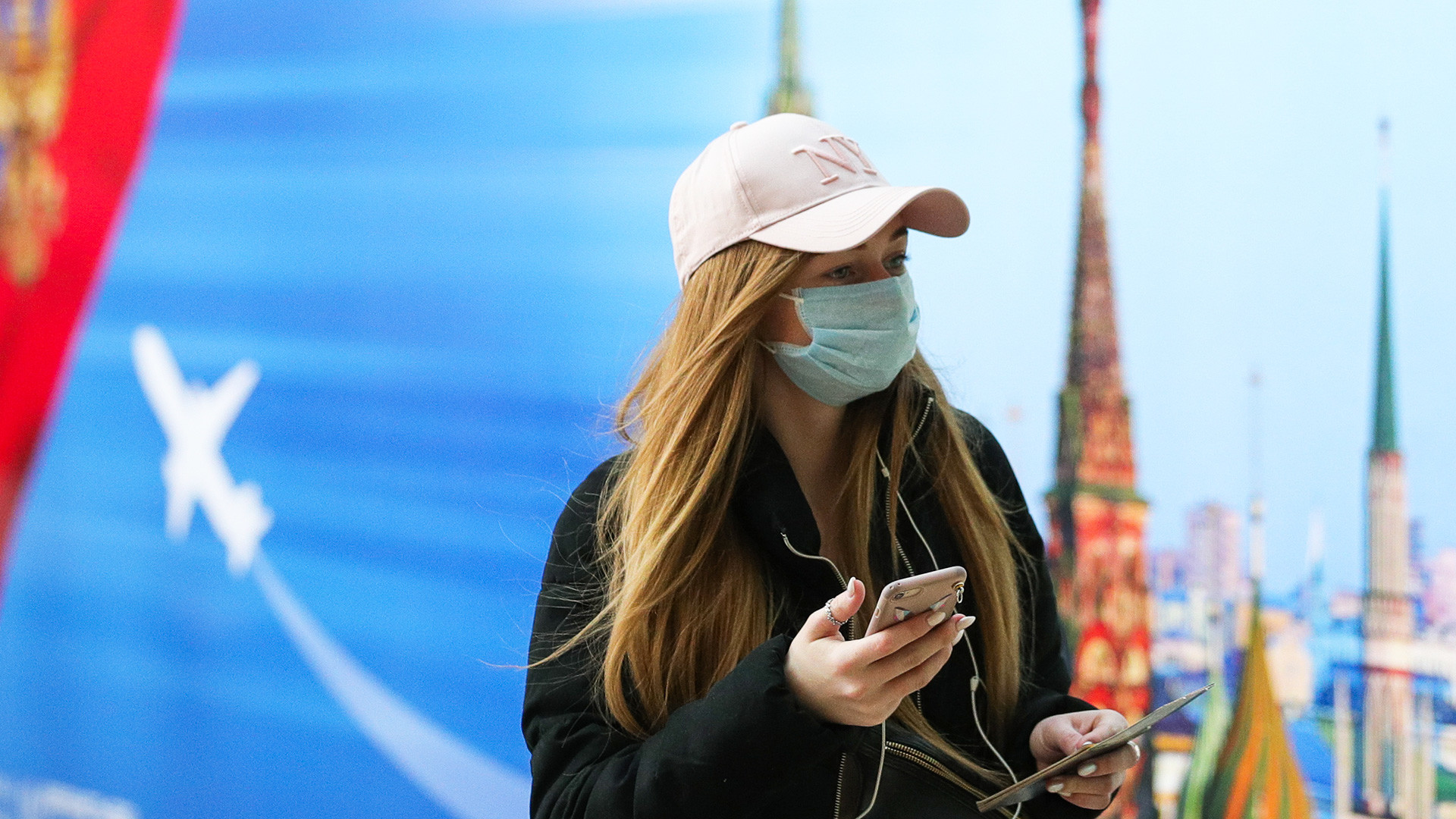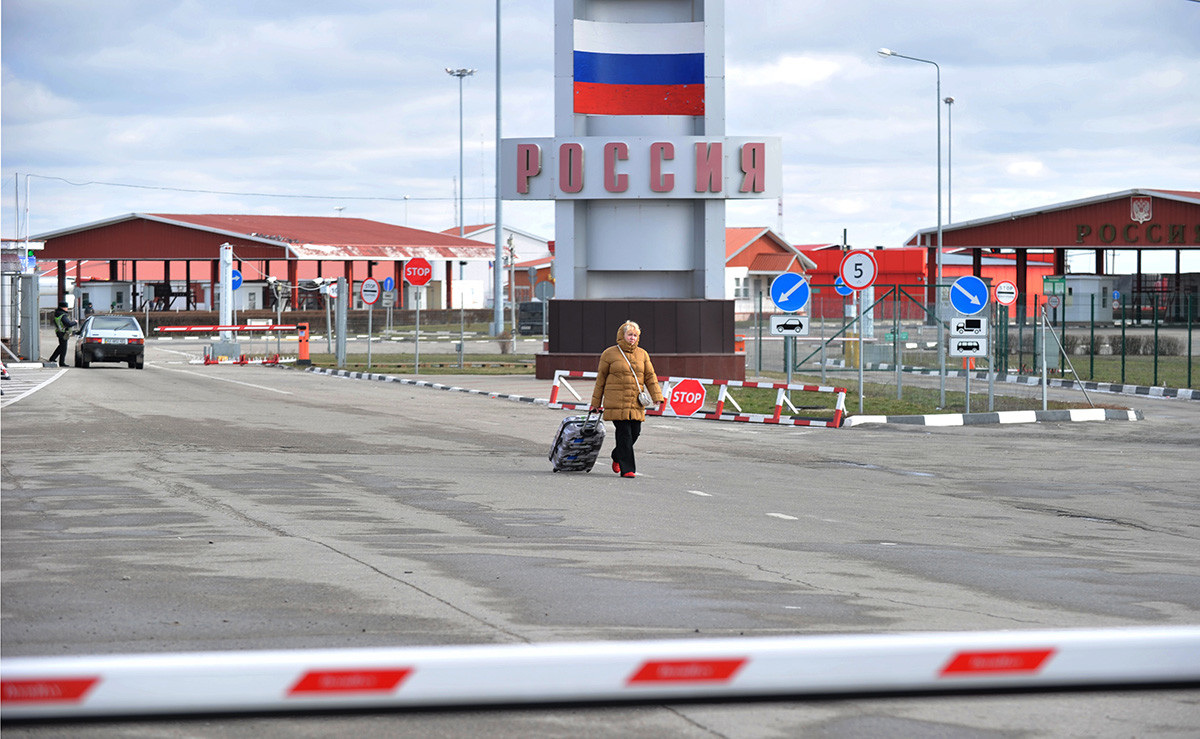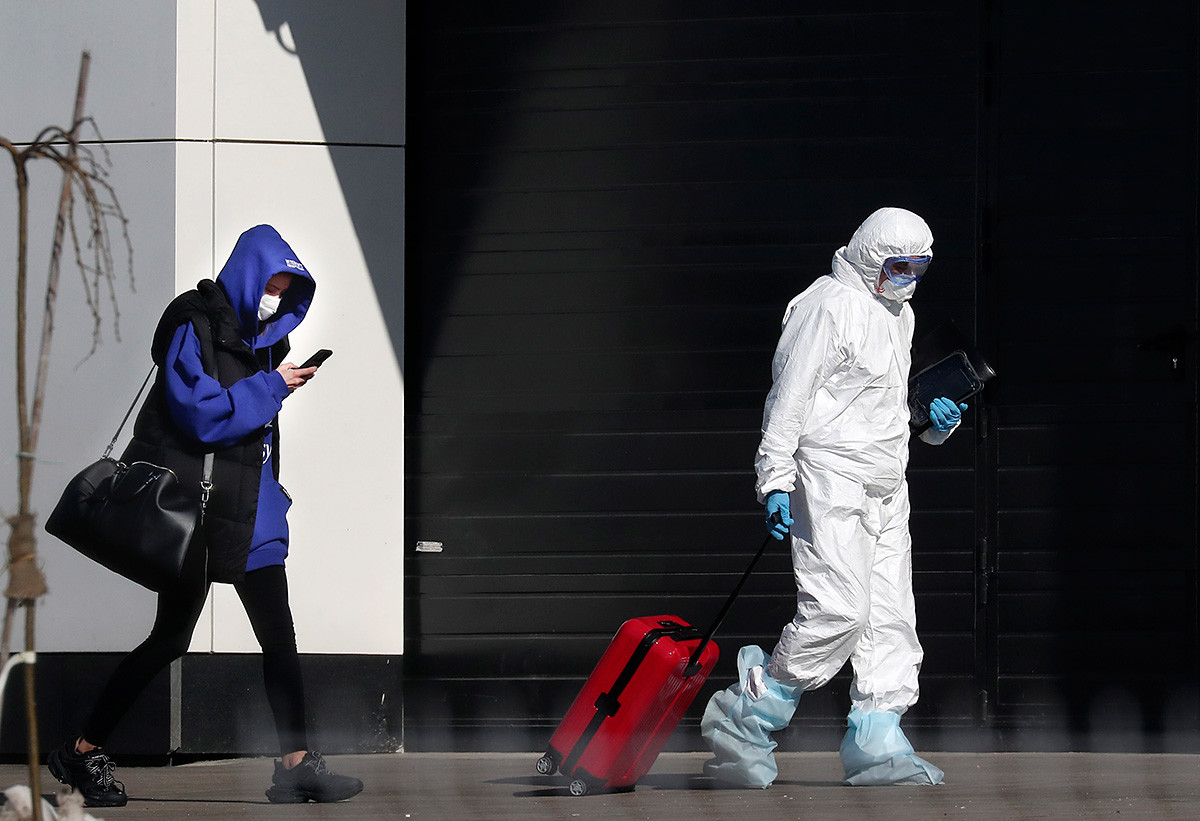Russia now bans entry to ALL foreign nationals. What to expect?

A girl in a face mask at the Sheremetyevo International Airport outside Moscow
Sergei Bobylev/TASSWhat happened?
The Russian government has taken the emergency decision to suspend entry to Russia for all foreign nationals without a Russian passport in what is the latest development in the fight against the outbreak of the coronavirus. The new ban is to take effect at midnight on March 18, and will last until May 1, according to an official [LINK] statement from the government.
Which countries are included in the ban?
All countries, including EU members and beyond.

A woman walks at the Goptivka checkpoint, near Kharkiv on the Ukrainian-Russian border
AFPI’m a diplomat. Does this mean I can’t travel now
There is a handful of exceptions that do not fall under the new ban:
- Diplomats
- Consular staff and similar bodies situated on Russian territory
- Official government delegations and holders of associated work visas
- International air, maritime and railway crews
What about the rest?
A private citizen can only enter Russia during the stated period of time if they have a residency permit.
Another exception concerns passengers flying home by transit through Russian territory.
All other entries will be considered illegal starting March 18, and will incur a fine of up to 200,000 rubles ($2668), as well as community service and a potential prison term of up to two years.

A medical worker helps a woman, suspected of having the coronavirus infection, with her suitcase to a hospital outside Moscow.
APSo, if I have a residency or other relevant permit, and I’ve just arrived in Russia, am I in the clear?
Not exactly! If you’ve arrived in Moscow and are a national of one of the following countries, you and those living with you are to be quarantined for a period of 14 days; this includes not coming to work, taking part in studies or visiting any public areas or events.
Here’s the list of countries whose nationals should consider twice before traveling to Russia at this time:
- Albania
- Andorra
- Belorus
- Bosnia and Herzegovina
- Vatican
- The UK
- Germany
- Iran
- Iceland
- Spain
- Italy
- China
- Korea
- Lichtenstein
- Macedonia
- Moldavia
- Monaco
- Norway
- U.S.
- San-Marino
- Serbia
- Ukraine
- France
- Croatia
- Montenegro
- Switzerland
Aside from that, Russia’s consumer watchdog, Rospotrebnadzor, has issued an official order to scan all EU arrivals to Russia, whose date of entry is two weeks prior to March 16, and whose base is outside Moscow - meaning, if you’re an EU national who’s arrived for a visit or a prolonged stay in the past two weeks - and who will not be staying in the capital - you will have to submit to a viral scan.
Moreover, all returnees from abroad - Russian or otherwise - found to display symptoms associated with acute respiratory infection (also the telltale sign of the coronavirus infection) will likewise undergo mandatory checks in case of arrival any time during the past 30 days.
If using any of Russia Beyond's content, partly or in full, always provide an active hyperlink to the original material.
Subscribe
to our newsletter!
Get the week's best stories straight to your inbox